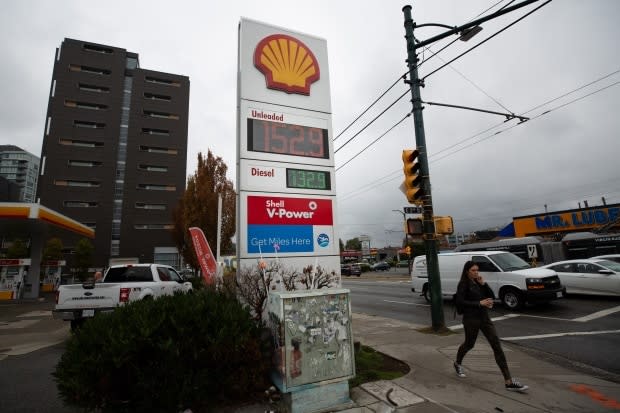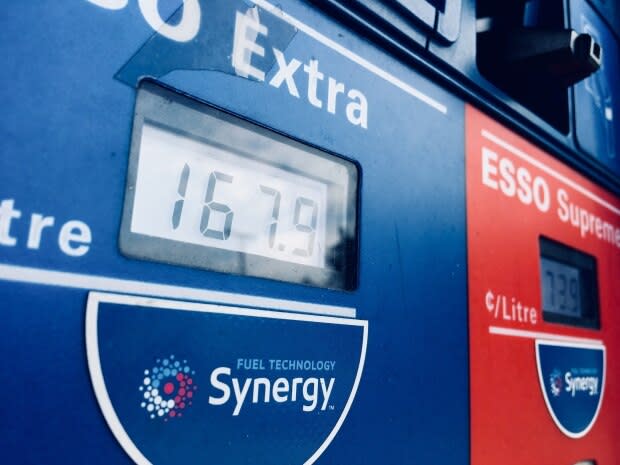Companies still can't account for 13 cent gap in B.C. gas prices, report finds
Five major companies operating in B.C. are still unable to account for an unexplained gas price difference of 13 cents per litre between southern B.C. and other parts of the Pacific Northwest, according to a report released Tuesday.
The companies had the opportunity to explain the discrepancy this fall after the B.C. Utilities Commission (BCUC) highlighted the gap following a provincial inquiry. A statement from the commission Tuesday said its panel has reviewed the companies' attempted explanations but found the evidence they offered does not add up.
"The Panel finds their evidence either inconclusive or conflicting," the statement said.
The lack of concrete evidence means there is still no explicit explanation for the price gap costing drivers on the Canadian side of the border nearly $500 million a year.
Inquiry called amid record-breaking prices
Wholesale prices in southern B.C. are set based on those in the Pacific Northwest of the United States because it is a nearby region and a similar price is considered justifiable, BCUC CEO David Morton said when the commission's initial inquiry report came out in August.
The commission found that even after accounting for transportation costs and higher B.C. fuel standards, Metro Vancouver drivers are still paying more than those in Washington.
"The higher price differentials cannot be explained by economic theory or justified by known factors in the market, nor can the panel find a specific trigger in 2015 that would explain the beginning of this disconnect,'' Morton said at a news conference in August.

Premier John Horgan called the public inquiry in May as prices reached a record-breaking $1.70 per litre. It was asked to explore factors influencing gas and diesel prices since 2015, not including taxes, as well as actions the province could take.
Morton said some things have changed, including higher crude prices, the Trans Mountain pipeline's capacity constraints and higher costs for retailers.
But prior to 2015, Metro Vancouver drivers paid five cents a litre more than Seattle drivers. Wholesale prices in northern B.C. are based on Edmonton prices and drivers in that part of the province pay six cents more a litre, he added.
Morton said B.C.'s wholesale market is not truly competitive because a small number of wholesalers control distribution and have the ability to influence prices.
Morton said the 13-cent price gap means British Columbians pay $490 million a year more than they otherwise would.
Suncor Energy, Parkland Fuel, Imperial Oil, Advanced Biofuels and 7-Eleven Canada participated in the one-month comment period after the initial inquiry in August. All five companies filed evidence in an effort to explain the price gap.
The supplementary report Tuesday said the evidence was not conclusive enough to account for the gap. At best, it said, the evidence could bring the gap down 10 cents per litre instead of the originally reported 13-cent discrepancy.

The statement Tuesday said the cost of the most expensive five per cent of the gas supply in the Pacific Northwest is driving the price of all gas sold in B.C. The panel received more than 40 letters from residents during the comment period, expressing anger and concern about sky-high gas prices.
More than half of those letters came from Powell River. The Sunshine Coast city has seen gas pricers hovering around $1.59 per litre — prices similar to those in Vancouver and consistently higher than those in the Lower Mainland, despite the difference in land value and access to alternative modes of transportation.
The panel said it could not explain the city's prices.


